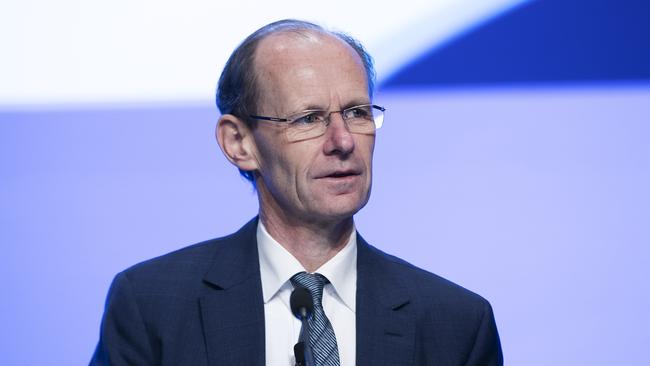‘We want you’, ANZ’s message to older workers
ANZ chief executive Shayne Elliott says mature aged workers are much sought after at the bank to help combat Covid-19 labour shortages.

ANZ is looking at recruiting older workers and pensioners to help combat labour shortages and midlife career lulls.
While Covid-19 lockdowns have placed many small businesses under pressure, particularly in retaining employees, the pandemic has also triggered labour shortages across industries such as agriculture and horticulture, which are reliant on international backpackers.
But ANZ chief executive Shayne Elliott, who visited one of Australia’s biggest backpacking regions, Mildura, last week, said labour shortages were also emerging in the office as well as on the land.
And at ANZ, older workers have become sought after, with the bank finding mature aged employees were more empathetic and suited to helping customers particularly those who have gone through hardship such as losing their job, going through a divorce or financial difficulties.
“We’ve been in conversations with various elements of government and state in particular, exactly around this issue, around not so much about replacing backpackers but clearly there are some emerging labour shortages,” Mr Elliott said.
“We’ve got adaptable people with great mindsets and great ways of dealing with people who may have retired or been out of work. How do we get those people back into work?
“There’s an opportunity for doing that. We’ve actually got some programs that we were doing with the Victorian state government on that, particularly for older workers who may want to come back into some sort of customer care roles.”
The pace of technology changes has also meant some people may have left the workforce early, Mr Elliott said, and ANZ was looking at ways to lure them back.
“For a bank like ANZ to commit to retrain people, we’ve also got a really interesting program around technology.
“What we found in the data is a lot of people, particularly women, who were older and who had worked in tech in the past for whatever reason had moved out of the workforce and then somehow felt they weren’t worthy or capable of coming back.
“So we’ve got a program to bring people back to the workforce and it has been enormously successful. So look, I think there are opportunities for that.”
And new trends that have emerged in the past 18 months throughout the Covid-19 pandemic could make it easier for people to return to the workforce.
While many chief executives have called on their employees to return to the office to help revive CBDs battered by Covid-19 lockdowns, Mr Elliott predicted flexible work arrangements, where people would work some of the time from home, were here to stay.
“I suspect that one of the changes that we will experience in the economy will be the way we do things around more working from home, more flexible working, which will mean workers will be more accessible for more people.
“And certainly I think that would be true about people who are a little bit older. So I actually think we’ve probably got more diversity of the workforce as a result of employers biting the bullet on workplace choice.”



